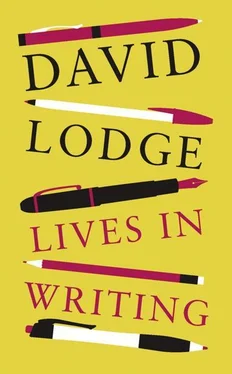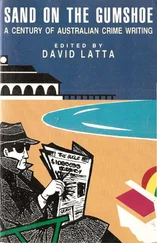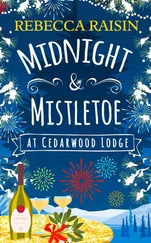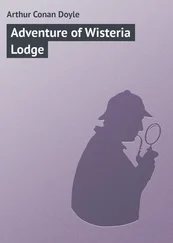David Lodge
Lives in Writing
This thoughtful and enlightening collection by one of our best-loved and most highly respected novelists and critics includes essays on Graham Greene, Kingsley Amis, Terry Eagleton, Muriel Spark and Alan Bennett, as well as pieces on John Boorman and the death of Princess Diana. It also gives insight into Lodge’s own writing processes and novels. Full of anecdotes and wonderful observations, Lives in Writing is the perfect literary companion.
Drawing on David Lodge’s long experience as novelist and critic, Lives in Writing is a fascinating study of the interface between life and literature.
David Lodge’s novels include Changing Places, Small World, Nice Work, Thinks…, Author, Author and, most recently, A Man of Parts . He has also written stage plays and screenplays, and several books of literary criticism, including The Art of Fiction, Consciousness and the Novel and The Year of Henry James .
To Angela, and in memory of Tom
I have combined creative writing with the practice of literary criticism for more than fifty years, and I think of myself as primarily a novelist in the former capacity, and a critic and theorist of the novel in the latter. But as I get older I find myself becoming more and more interested in, and attracted to, fact-based writing. This is I believe a common tendency in readers as they age, but it also seems to be a trend in contemporary literary culture generally. These essays variously describe, evaluate and exemplify different ways in which the lives of real people are represented in the written word: biography, the biographical novel, biographical criticism, autobiography, diary, memoir, confession, and various combinations of these modes. The book’s title has another meaning: with a single exception, all the subjects are or were by profession ‘in writing’ of various kinds (though one of them is primarily a film-maker). The connections between their personal lives and the work they produced make a thread that runs through all these essays. Nearly all contain autobiographical passages of my own, and some in the latter part of the book are framed as memoirs. The last essay belongs to a sub-species of autobiography, of which Henry James was the supreme exponent, in which a writer tells the story behind the story of one of his books: the history of its genesis and composition, and sometimes its reception. In the title essay of an earlier book, The Year of Henry James , I treated my novel Author, Author in this way. ‘Writing H.G. Wells’ is more polemical. Given the controversial status of the biographical novel at the time A Man of Parts was published, an account of how it was written inevitably became a kind of defence of this hybrid genre.
Although I hope scholars may find things of interest in this book, it is designed primarily for the ‘general reader’. In the interest of readability I have kept footnotes and bibliographical information to a minimum. Books discussed or quoted are identified simply by author, title and date of first publication.
D.L., February 2013
NORMAN SHERRY’S THREE-VOLUME biography of Graham Greene 1occupied him continuously and exclusively for twenty-eight years, which may be a record of some kind. Greene died in 1991, having correctly predicted that he would not live to read the second volume, which was published in 1994. He also prophesied that Sherry would not survive to read the third and last volume, eventually published in 2004, a remark in which one might detect some resentment at the ever-increasing scale and scope of the biography, and regret for having authorised its often embarrassing revelations. That prophecy was happily unfulfilled, but at times it was a close-run thing. Sherry promised Greene that he would visit every country that the novelist had used as a setting for a novel, a vow that took him to some twenty countries, entailing danger, hardship, and at least one life-threatening illness. He admits on the penultimate page of the biography that ‘reaching the end had often seemed beyond my strength and spirit’, and superstitiously left the very last sentence of his narrative unfinished.
It is impossible not to see in the progress of this enormous work a cautionary tale about the perils of literary biography when it becomes an obsessive and all-consuming project, a doomed attempt to re-live the subject’s life vicariously and somehow achieve a perfect ‘fit’ between it and his artistic output. ‘No novel can be believable if the novelist does not acknowledge the truth of his own experiences, even when these are disturbing,’ Sherry asserts in the course of this final instalment. ‘Greene needed to deal with his past: and we, in turn, need to excavate his private history.’ There are several debatable assertions here. What does ‘truth’ mean in this context? If we grant that writers often deal with painful and disturbing personal experience in their fictions (and Greene himself wrote that ‘writing is a form of therapy’) does this not usually involve departing from the empirical facts of such experience — altering them, even inverting them, reinterpreting them, and combining them with purely fictional material? If so, is there not a danger in trying to pin down the sources of characters and events of novels too literally in the writer’s own life? Does a novel become more ‘believable’ when we succeed in doing this? Or less?
These questions belong to a larger debate which has exercised literary critics and scholars since T.S. Eliot declared in 1919 that ‘the more perfect the artist, the more completely separate in him will be the man who suffers and the mind which creates; the more perfectly will the mind digest and transmute the passions which are its material’. Eliot challenged the Romantic view that the creative process is essentially expressive of the writer’s self, and by implication the legitimacy of biographical interpretation, contributing crucially to the emergence of a new movement in academic literary criticism which regarded the text as an autonomous verbal object, and by the end of the twentieth century had triumphantly affirmed the ‘death of the author’. Meanwhile non-academic readers showed an increasing interest in biographies of authors, which were often written by academics of an empirical and historical bent. The fact is that the appeal of literary biography is undeniable and irresistible but cognitively impure. We are fascinated by the mystery of literary creation, and therefore eager to discover the sources of a writer’s inspiration; but we also take a simply inquisitive human interest in the private lives of important writers, especially if they involve behaviour that is in any way unusual. Graham Greene was a man whose life offered ample opportunity to satisfy both kinds of curiosity — perhaps so much opportunity that Norman Sherry allowed himself to be overwhelmed and in the end exhausted by it.
His first volume, covering the years 1904–39, was by far the best, convincingly locating the source of Greene’s obsession with the theme of treachery in his unhappy childhood, and telling vividly and lucidly the absorbing story of his up-and-down early career as a writer, and his remarkable courtship, marriage and extra-marital sexual life. It thoroughly deserved the praise it attracted. The second volume was less satisfying, because its thematic organisation obscured the narrative line of Greene’s life in the period 1939–55, but it did memorably contain the stranger-than-fiction story of Greene’s love affair with Catherine Walston, wife of the British Labour politician Harry Walston, which inspired The End of the Affair (dedicated ‘To C.’). The third volume, at 900 pages, is the longest and also the weakest. Sherry’s determination to find a real-life model for every important character in Greene’s novels, unweaving their artful blend of observed fact and imaginative invention, becomes increasingly obtrusive, and in spite of the book’s enormous length and plethora of facts, there are puzzling gaps. If there was a reference to Dr Fischer of Geneva (1980), for instance, I missed it, and there is none in the index. This enigmatic fable was a minor work, but one would like to know something about the background to its composition and its reception. Was it passed over because it had no obvious source in Greene’s life?
Читать дальше












